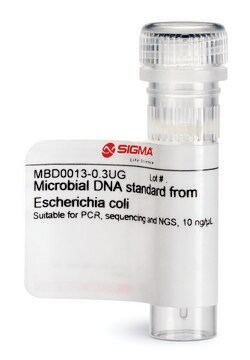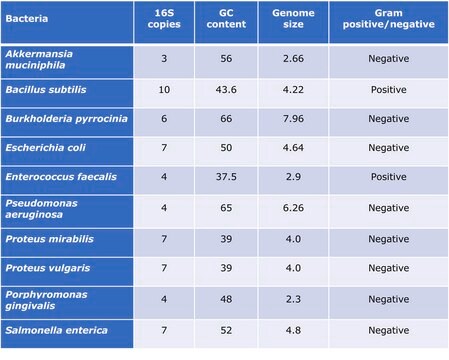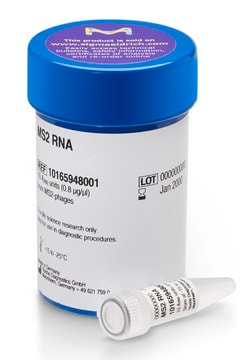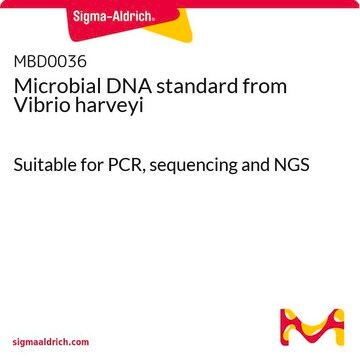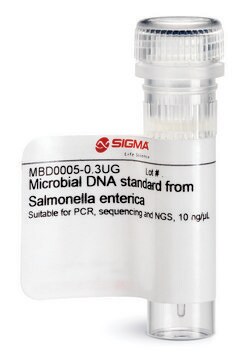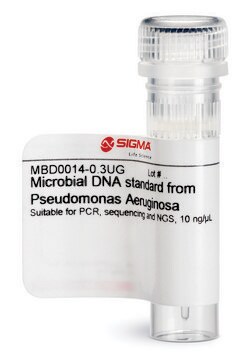추천 제품
일반 설명
Standardization of sample analysis is essential in microbiome genomics research workflow. Lack of standardization can lead to biases and errors in common processes during sample preparation and analysis such as sample amplification, sequencing, and bioinformatics analyses.1 The human microbiome includes not only bacteria, but also viruses and fungi. While the “bacteriome” field has been researched extensively in the past years, fungi, comprising the “mycobiome”, remain relatively neglected. Fungi and yeasts have been shown to be involved in illness conditions such as cancer and gastrointestinal disease. The human gut is populated by three fungal phyla, Ascomycota, Basidiomycota, and Zygomycota.
The fungal microbial genomic DNA standard from Aspergillus fumigatus can serve as standard for benchmarking the performance along the workflow of microbiome research and metagenomic analyses, as well as a tool to increase reproducibility and allow comparison of results obtained by different labs.
Aspergillus fumigatus is an ubiquitous saprotroph fungus belonging to Ascomycota. Aspergillus fumigatus spores can induce allergic airways response after antibiotic treatment2. With increases in the number of immunosuppressed patients, there has been a dramatic increase in severe and usually fatal invasive aspergillosis, caused by the conidia of Aspergillus species. Aspergillosis is now the most common mold infection worldwide.3
The genomic DNA is provided at ≥10 ng/μL concentration in TE buffer pH 8.0. It is recommended to avoid freeze thaw cycles with this product.
Read here how to use our standards to ensure data integrity for your microbiome research.
The fungal microbial genomic DNA standard from Aspergillus fumigatus can serve as standard for benchmarking the performance along the workflow of microbiome research and metagenomic analyses, as well as a tool to increase reproducibility and allow comparison of results obtained by different labs.
Aspergillus fumigatus is an ubiquitous saprotroph fungus belonging to Ascomycota. Aspergillus fumigatus spores can induce allergic airways response after antibiotic treatment2. With increases in the number of immunosuppressed patients, there has been a dramatic increase in severe and usually fatal invasive aspergillosis, caused by the conidia of Aspergillus species. Aspergillosis is now the most common mold infection worldwide.3
The genomic DNA is provided at ≥10 ng/μL concentration in TE buffer pH 8.0. It is recommended to avoid freeze thaw cycles with this product.
Read here how to use our standards to ensure data integrity for your microbiome research.
애플리케이션
Suitable as a standard for PCR, Sanger and next generation sequencing (NGS).
특징 및 장점
- Individual microbial standard for microbiomics and meta-genomics workflow
- Suitable standard for PCR, Sanger sequencing and 18S NGS
- Improves bioinformatics analyses
- Increases reproducibility and repeatability
- Identity and purity of the genomic Aspergillus fumigatus DNA has been confirmed by 18S NGS and gel electrophoresis
물리적 형태
Liquid -The genomic DNA is provided at ≥10 ng/μl concentration in TE buffer pH 8.0
Storage Class Code
12 - Non Combustible Liquids
WGK
WGK 1
시험 성적서(COA)
제품의 로트/배치 번호를 입력하여 시험 성적서(COA)을 검색하십시오. 로트 및 배치 번호는 제품 라벨에 있는 ‘로트’ 또는 ‘배치’라는 용어 뒤에서 찾을 수 있습니다.
자사의 과학자팀은 생명 과학, 재료 과학, 화학 합성, 크로마토그래피, 분석 및 기타 많은 영역을 포함한 모든 과학 분야에 경험이 있습니다..
고객지원팀으로 연락바랍니다.